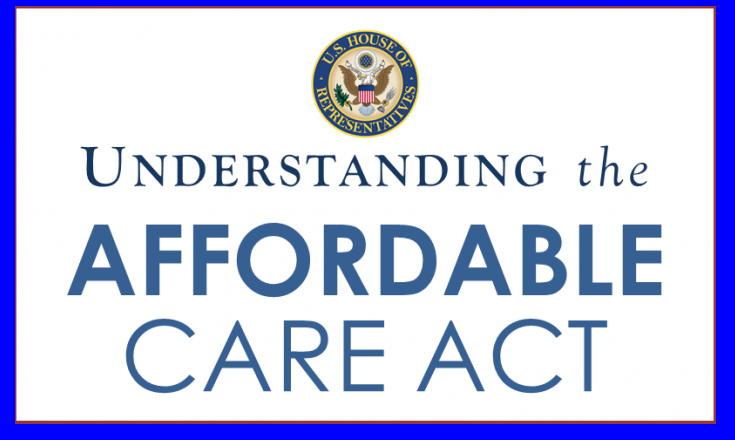If your business handles ACA reporting or is subject to the ACA employer mandate, you need to understand the new ACA reporting requirements for 2024. These changes could impact your IRS filing process, Form 1095-C distribution, and overall reporting obligations.
Thanks to two new federal laws—the Paperwork Burden Reduction Act (PBRA) and the Employer Reporting Improvement Act (ERIA)—employers now have more flexibility in how they distribute ACA forms, extended response times for penalties, and clearer compliance guidelines. These updates could save employers time and money, but failing to comply still carries financial risks.
This post talks about what’s changed, how it affects you, and what steps you need to take to stay compliant.
Key Changes to ACA Reporting in 2024
The latest updates simplify some employer obligations while reinforcing compliance rules. Here’s what you need to know:
Forms 1095-B and 1095-C Are Now Available Upon Request
Before 2024, employers were required to distribute Forms 1095-B and 1095-C to every eligible employee. Now, these forms only need to be sent if an employee specifically requests one. Employers must post a clear and accessible notice informing employees of their right to request a copy. If an employee asks for their form, it must be provided within 30 days or by January 31 of the following year, whichever is later.
This update reduces the administrative burden for businesses. If your company was mailing thousands of paper forms every year, you can now cut costs by fulfilling only necessary requests.
Employers Can Now Send ACA Forms Electronically
The ERIA also allows employers to distribute Forms 1095-B and 1095-C electronically, provided they obtain employee consent. Employees must have the option to opt in, withdraw consent, and request a paper copy at any time. If your workforce prefers digital access, this rule simplifies distribution. However, to maintain compliance, employers need to track consent and make sure employees can switch back to paper forms if needed
Using an Employee’s Date of Birth Instead of a TIN
Employers often struggle to obtain Tax Identification Numbers (TINs) for ACA reporting. Under the ERIA, employers may now substitute an employee’s date of birth in place of a missing TIN. This change streamlines the reporting process and prevents delays.
Employers Now Have 90 Days to Respond to IRS Penalty Notices
The IRS issues Letter 226-J when it identifies a potential ACA compliance failure. In the past, employers had only 30 days to respond to this notice, which isn’t much time for appeals or corrections. Now, employers have 90 days to address potential penalties.
This extension gives businesses more time to contest inaccurate assessments, gather supporting documentation, or make necessary corrections. However, missing this deadline can still result in significant financial penalties, so close monitoring of IRS notices is necessary, and consulting with a corporate attorney may be prudent to respond within the new timeframe.
The IRS Can No Longer Assess ACA Penalties Indefinitely
Before 2024, there was no statute of limitations on ACA-related penalties, meaning the IRS could assess penalties indefinitely. Under the new rules, the IRS now has six years to issue penalties for ACA coverage failures.
The six-year countdown starts from the due date of your ACA filing or the actual filing date, whichever is later. This change limits long-term liability for employers, but businesses should still retain ACA records for at least six years in case of audits.
Who Must Comply With ACA Reporting?
ACA reporting requirements apply to both Applicable Large Employers (ALEs) and self-insured employers. Businesses with 50 or more full-time employees must file Forms 1094-C and 1095-C with the IRS, while smaller employers offering self-insured health coverage must submit Forms 1094-B and 1095-B.
Additionally, if your business files 10 or more ACA returns, electronic filing is mandatory through the IRS ACA Information Returns (AIR) system.
State-specific mandates remain in effect in California, Massachusetts, New Jersey, Rhode Island, and Washington D.C., where employers may still be required to provide paper copies despite the federal updates.
What Employers Need to Do Next
To stay compliant and avoid penalties, employers should take the following steps:
First, businesses that want to stop automatic mailing of their ACA forms must post a clear notice informing employees they can request a copy. They should have a process in place to handle these requests within 30 days. If your company plans electronic distribution of ACA forms, you need employee consent and to maintain a system that allows employees to withdraw consent at any time.
Employers should also update their internal procedures for handling IRS Letter 226-J penalty notices. With the new 90-day response deadline, companies need a reliable process for monitoring IRS correspondence and contesting penalties when necessary.
It’s just as important to confirm the 2024 ACA filing deadlines. Employers filing by paper must submit their forms by February 28, 2025, while those filing electronically have until March 31, 2025.
Finally, due to the new six-year statute of limitations, employers should ensure they retain ACA records for at least six years to protect against audits or penalty disputes. Legal departments or outside legal counsel should be able to help with this.
Complying with ACA Reporting Requirements for 2024
The new ACA reporting requirements for 2024 give employers greater flexibility, but businesses must remain vigilant to ensure compliance. The ability to distribute ACA forms only upon request, send them electronically, and take advantage of the extended penalty response window can reduce administrative burdens—but only with proper implementation.
To avoid penalties and maintain compliance, employers should carefully review their ACA reporting procedures. Ensuring employees receive the required notices, maintaining accurate records, and responding promptly to IRS communications will help businesses navigate these changes effectively.
Resources:
https://www.irs.gov/e-file-providers/affordable-care-act-information-returns-air
https://www.fisherphillips.com/en/news-insights/5-new-aca-reporting-and-penalty-rules.html
https://www.workforcebulletin.com/two-new-laws-provide-employer-relief-for-aca-reporting




